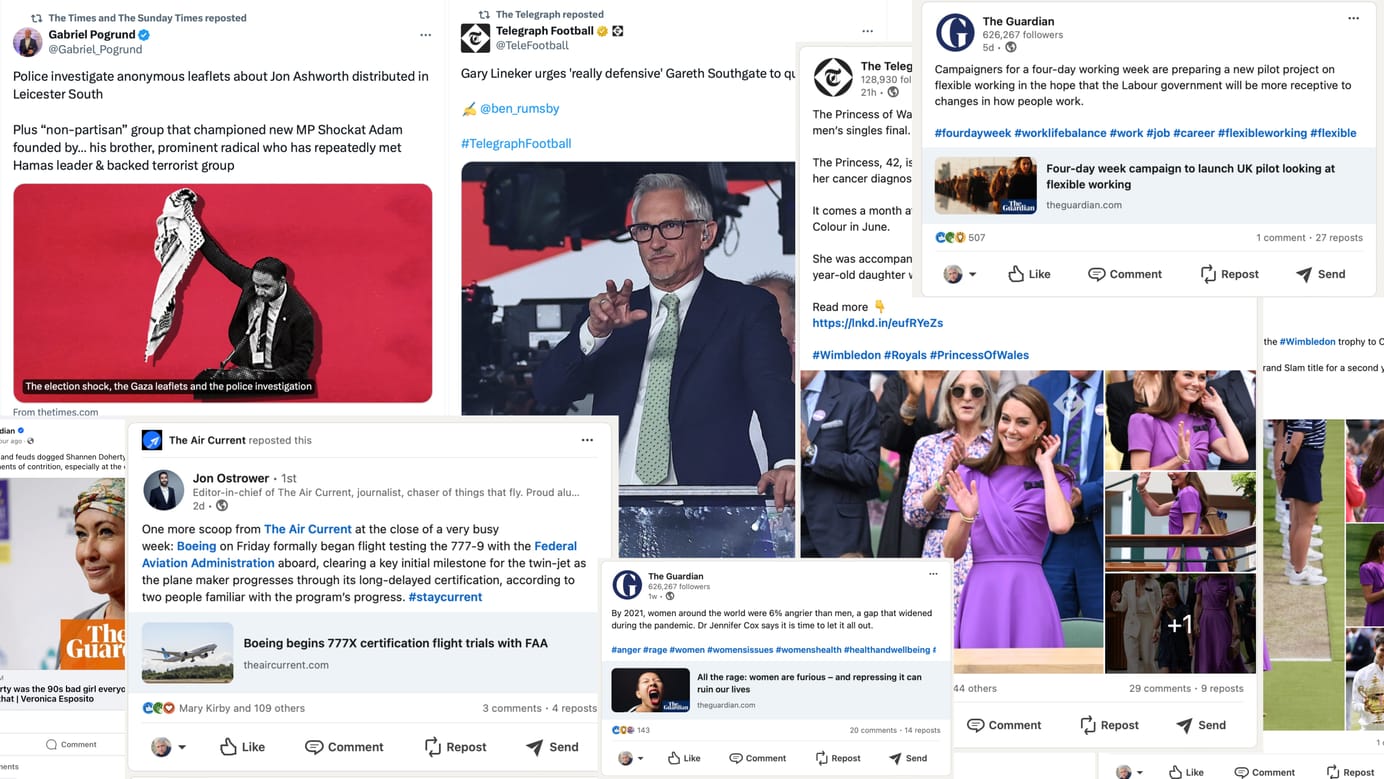
Facebook’s long, slow breakup with journalism is underway
Meta is putting Facebook's journalism-related features on the back burner. The social network's on and off relationship with news is finally over.
To anyone who has been paying attention, the latest “bombshell” from Facebook about its relationship with journalism shouldn’t be a surprise. It’s been advancing on us for four or five years, and it’s finally here, as the WSJ reported:
Meta Platforms Inc.’s Facebook is reallocating resources from its Facebook News tab and newsletter platform Bulletin, as the company focuses more on the creator economy, senior executive Campbell Brown told employees in a memo.
So, Facebook clearly no longer sees Substack as a threat, so its newsletter platform is heading for mothballs, barely a year after its launch. (Has anyone actually ever read or subscribed to a Bulletin newsletter?)
Campbell Brown is a former journalist and long-term head of the company’s media partnerships team (see posts passim). As the WSJ piece makes clear, this was a decision above her pay grade:
The decision was made at the product level, not by the partnerships team that Ms. Brown is a part of, according to a person familiar with the matter.
At a corporate level, Meta has finally decided that journalism is more trouble than it’s worth.
This has been a toxic relationship for too long
Back in 2018 I wrote a long, long piece about the clear evidence that the relationship between Facebook and news publishers was, at very best, a marriage of convenience. Publishers needed the traffic hose from Facebook, but never truly liked or trusted it. And Facebook had seen news as increasingly troublesome since it was hauled over the coals for its role in the electoral shocks of 2016.
The signs have all been there that this was coming. Meta has been less than enthused about renewing Facebook News deals. Referrals from Facebook are on their way downwards.
Hunting for attention in all the wrong places
Meta is just going where the attention is — and where the competition lurks. Facebook pretty much owns the market for angry middle-aged people arguing over news stories in groups. It doesn’t need to devote any more time to that because it’s got a big enough moderation issue on its hands already.
No, its problem is the younger folks, the folks who don’t want to go “where their racist uncle is” as one student put it to me, and who consume increasing volumes of content in video. They’re not on Facebook, and Meta needs to get them back onto its products — with Instagram the focus of that work.
There are some potentially serious consequences for this shift of focus. The Meta money tap might well get turned off. We could well see some projects funded by Facebook suddenly find themselves without income, including high-level revenue work being done by WAN-IFRA and other organisations. I’d be feeling a little nervous about the future of the scheme where Meta funds local journalism training, too.
Broken Trust

MG Siegler makes the obvious point that most publishers seem to miss: Facebook keeps pulling this bait-and-switch on us:
Publishers: when Facebook approaches you to sign on to a new service they’re launching to “help” you, do not sign up. At best, it will be a huge waste of time. At worst, it will actually damage your business.
Do you think we might learn the lesson this time?
What you should do about this
This doesn’t mean, however, that we can strike Facebook from our audience strategies, though. It’s still worth taking the time to make sure you’ve got great Open Graph data for a story you think has potential on Facebook (that’s largely the headline and lead photo). Why? Well, so that if others share your content, you’ll do well out of it. And Groups remain the principal source of activity on the platform, and are well worth exploring.
But in the medium term, getting your social video skills up to speed, through training, experimentation — or hiring talent — is likely to become ever more important to getting attention from Meta’s existing platforms. Meta’s own focus is drifting away from them, as it tries to skate to where the puck might be: the metaversal future it’s hoping to own.
Those skills are worth developing in-house because they’re portable across Facebook, Instagram (which is no longer a photo app, folks), Snapchat and, of course, TikTok.
Some people are actively doing this. I’ve been enjoying the work one OM&HB reader and former colleague, Kate Woods, has been doing building social video for her business Salondipity, for example:
And David Knowles’ team at The Telegraph is doing good work:
@thetelegraph Your global news update, 28.6.22 #ukraine #russia #kremenchuk #jordan #texas #sanantonio #news
♬ News Background (loopable) - SharpFourStudio
Let’s get the Meta divorce over
In the end, though, the relationship we once “enjoyed” with Meta properties is over. The divorce is underway and, perhaps, once it’s finalised, we can renegotiate a new relationship, that’s more like casual acquaintances than and deeply unhealthy relationship with co-dependence and toxic power relationships.
Facebook may be dumping us — but eventually, we’ll be glad it did.
Sign up for e-mail updates
Join the newsletter to receive the latest posts in your inbox.










